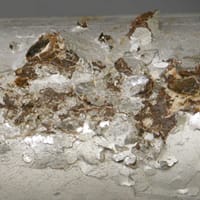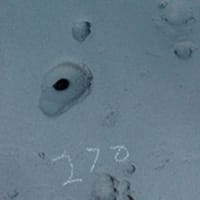Corrosion Engineering


Our Corrosion Engineering Testing Services
Our engineers and technicians utilize their academic training, field experience, and advanced analysis tools to identify and help control modes of corrosion and environmental degradation of materials that can lead to component or system-wide failures with our corrosion engineering services.
We maintain the capability to conduct standardized materials and corrosion tests at our spacious materials laboratory located in Houston, TX. However, our passion is designing and conducting customized corrosion, cracking, and materials qualification tests in both sweet (CO2) and sour (H2S) environments. Our focus is always to understand and then to accurately duplicate the loading, environmental, and other conditions that client materials face in real life, so that test results can be applied to solving real world problems.
For instance, our subject matter experts have improved and refined the jet impingement technique for flow corrosion testing to allow both in depth scientific investigations and routine tests using re-circulating, batch or once-through flow, including gas-in-liquid or liquid-in-gas systems. In addition, we have developed innovative techniques for: slug flow correlation, corrosion inhibitor evaluation in low and high shear stress conditions, batch inhibitor testing, and determination of corrosion inhibitor concentrations and inhibitor persistency.
Our capabilities list includes:
- Failure Analysis
- Field Inspection and Testing
- Forensic Engineering
- Materials Testing
- Metallurgical Laboratory Services
- Polymers and Elastomers
- Vulnerability Assessments
- Welding Engineering
Servicing the emerging needs in the Oil & Gas Industry: see Harsh Environment Testing
Also See: Corrosion Technology brochure
Corrosion Testing In Sweet (CO2) or Sour (H2S) Conditions
- Stirred autoclave (to 1700 psi at 450°F)
- Flow accelerated corrosion using jet impingement techniques
- Electrochemical testing in glassware and autoclaves at high temperature and pressure
- Linear Polarization Resistance (LPR), Electrochemical Impedance Spectroscopy (EIS), Electrochemical Noise (ECN, EN)
- Potentiodynamic, Potentiostatic and Galvanostatic Polarization
- Corrosion inhibitor evaluation, including critical concentrations and inhibitor persistency
- Corrosion under heat transfer conditions, including electrochemical capability
- Corrosion in controlled low oxygen environments (ppb level)
- Under deposit corrosion evaluation, including electrochemical capability
- Corrosion Under Insulation (CUI)
- Crevice corrosion and pitting
- Cathodic protection requirements; galvanic anode performance and qualification
- Stress corrosion cracking (SCC); sulfide stress cracking (SSC)
- Acoustic Emission (AE) capability
- C-ring, 4-point bent beam, double cantilever beam (DCB)
- Galvanic corrosion evaluation
- NACE standard tests, including:
- NACE TM0177 – Sulfide Stress Cracking (SSC); Method B, C and D
- NACE TM0284 – Hydrogen Induced Cracking (HIC)
- ASTM standard tests, including:
- ASTM G 48 – Stainless steel pitting and crevice corrosion in ferric chloride or custom environments
- ASTM G 150 – Critical pitting temperature (CPT) of stainless steels
Coatings Testing
- Full immersion coatings evaluation
- Cathodic disbonding
- Cold wall effect evaluation
Electrochemical and acoustic emission (AE) monitoring and evaluation
Contact us today to learn more about our corrosion engineering services.



